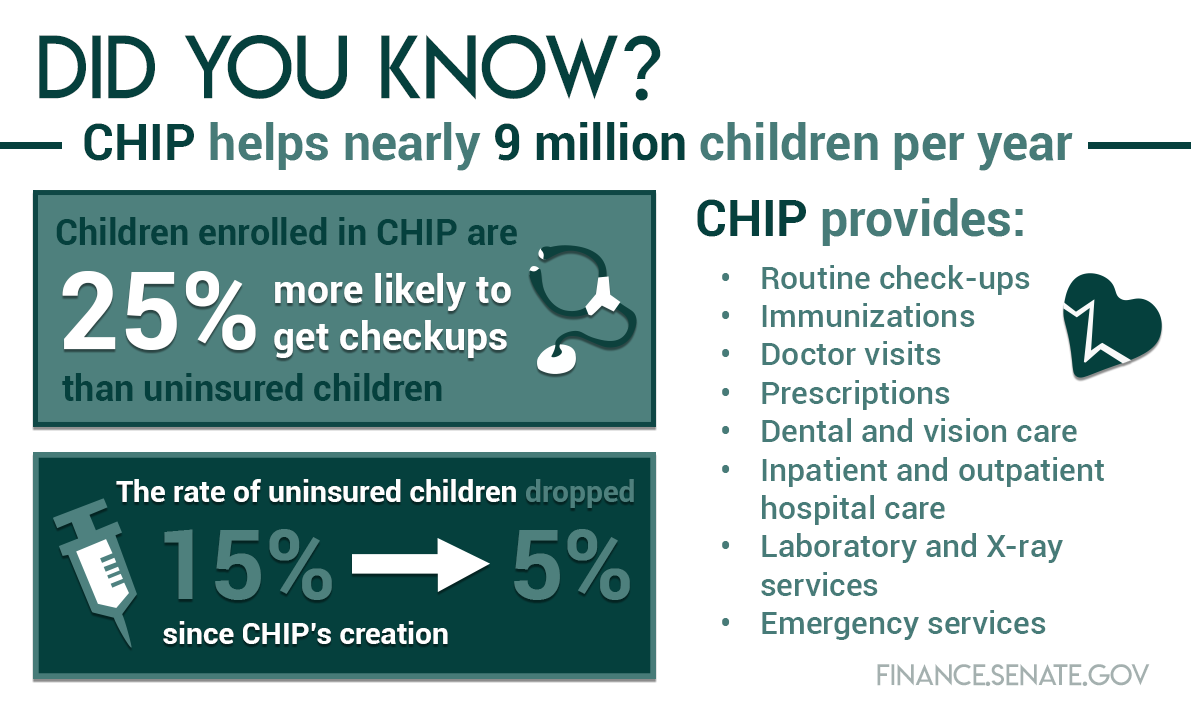Press Contact:
Katie Niederee, Julia Lawless (202)-224-4515
CHIP Fast Facts: Critical Healthcare Program Is Popular and Effective
Ten Things You Didn’t Know About the Children’s Health Insurance Program

Earlier this week, Congress passed a six-year extension of the Children’s Health Insurance Program (CHIP), the longest in the program’s history. This extension is critical to ensuring vulnerable children have continued access to health care.
It’s difficult to overstate the importance of this program and its impact on children across the country. Take a look at 10 CHIP fast facts that paint a picture of how the program works and why it’s so effective.
1. Senate Finance Committee Chairman Hatch (R-Utah) created CHIP in the 1990s with former Sen. Ted Kennedy (D-Mass.) to provide health insurance to vulnerable children, filling the gap for the many working families who made too much for Medicaid, but didn’t make enough to pay for health insurance.
2. CHIP is a federal-state partnership. Each state runs its own CHIP program in accordance with guidelines from the Centers for Medicare and Medicaid Services. This allows each program to meet each state’s unique needs. Funding CHIP is split between the states and the federal government.
3. Every year CHIP helps nearly 9 million children.
4. CHIP benefits vary by state. But all states provide comprehensive coverage, including:
-
Routine check-ups
-
Immunizations
-
Doctor visits
-
Prescriptions
-
Dental and vision care
-
Inpatient and outpatient hospital care
-
Laboratory and X-ray services
-
Emergency services
5. Additionally, some states’ CHIP programs choose to cover pregnant women as well.
6. CHIP is successful: Children enrolled in CHIP are more likely than uninsured children to have their medical needs met and are 25 percent more likely to get annual checkups.
7. And, since CHIP was passed, the amount of uninsured children has dropped from 15 percent to 5 percent.
8. CHIP covers dental care, when compared to other healthcare services, has the highest cost barriers meaning more people forgo needed dental care over prescription drugs, medical care, eyeglasses or mental health services. Ensuring children have access to dental care means they’re less likely to suffer from chronic disease, which can affect school attendance and performance and even extend into adulthood, affecting individual’s employability and overall health.
9. Families with children enrolled in CHIP report that they have the same or better access to services as families with private insurance.
10. CHIP serves working families. Almost 85 percent live in households with one working parent.
###
Next Article Previous Article
